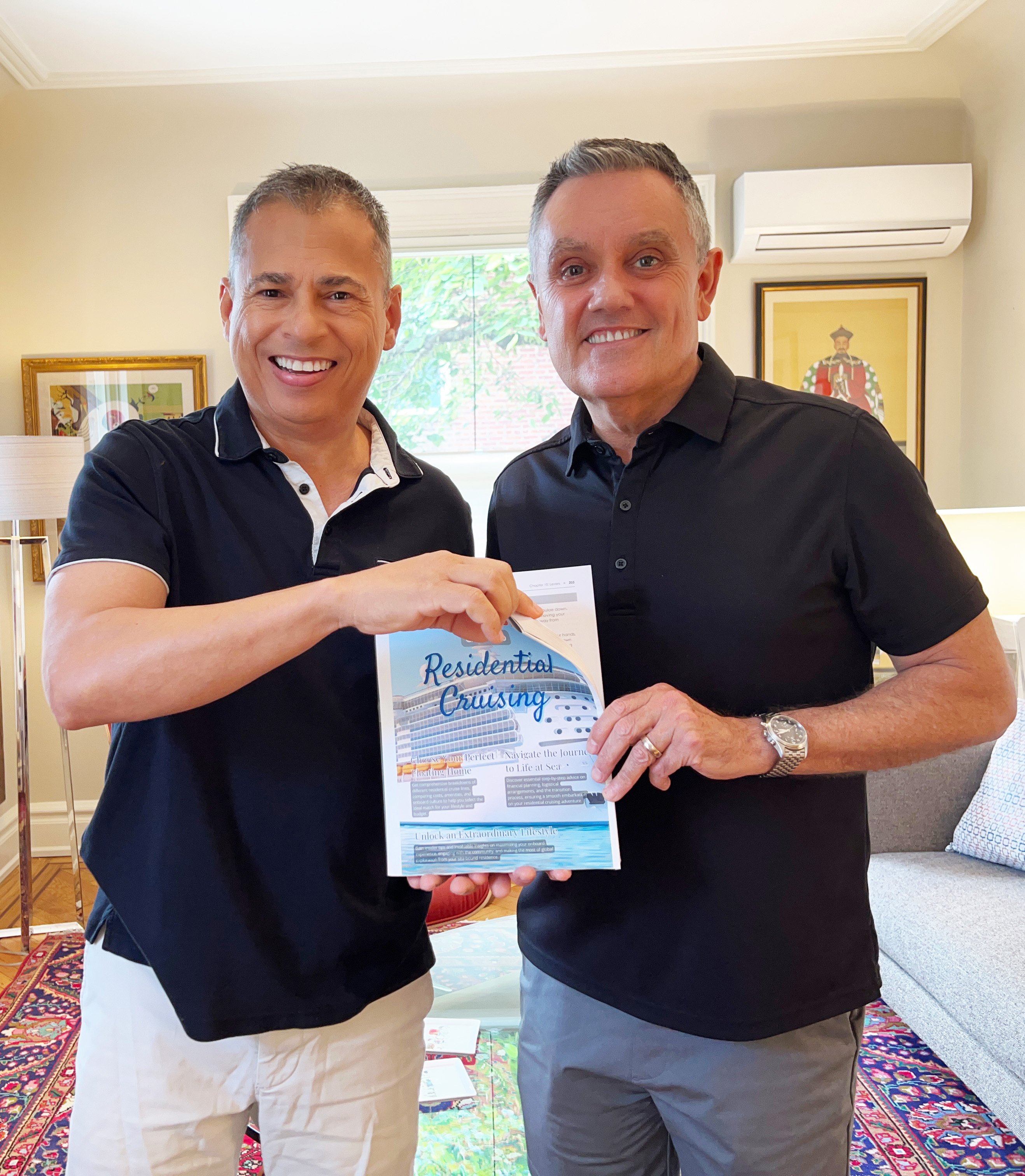
|
Live a Life at Sea? We Wrote the Book.Our definitive guide shows you how. All the ins and outs of residential cruising in one place. |
How to Vet a New Residential Cruise Line Startup

by Chris and Michael from ChartingOurCourse.com
The dream of living at sea is capturing more hearts and minds than ever before! It’s an exciting time, with new residential cruise companies emerging to offer their unique vision of a life of travel and community. We love seeing this industry grow, as it creates more opportunities for people to experience the incredible lifestyle we’ve chosen.
However, launching a cruise line is a monumental undertaking. For every exciting new venture, it's crucial for you, the potential resident, to be a savvy consumer. Investing in a life at sea is a major financial and personal decision, so it's essential to do your homework.
This guide is designed to empower you with the right questions to ask and the critical checks to make before you commit to any new residential cruise startup.
How Do You Properly Vet a New Residential Cruise Company?
Living at sea is a significant life decision, and it’s absolutely critical to do thorough research. According to us, Chris and Michael, based on our firsthand experience in making the leap to full-time residential cruising, vetting the company is the most important step. Here are the key questions you need to ask.
Who is behind the company?
The first thing to look for is a legally registered corporate entity and an executive team with a verifiable track record. Launching a cruise line is incredibly complex and requires deep expertise in maritime law, hospitality, and international finance.
A legitimate company should be registered with the Secretary of State (or an equivalent government agency) where it operates. You can often search these public databases online for free. Similarly, the executive team of a multi-million dollar venture should have a professional history you can find on business networking sites or in industry publications.
Your Action: Always verify that the company is a legally registered entity. Look for the leadership team and research their backgrounds. Do they have experience in the cruise or large-scale hospitality industry? If you can't find this basic information, it's a major red flag.

Do they actually have a ship?
This might sound obvious, but it’s the most important question. A residential cruise company’s primary asset is its vessel. Without a ship, there is no business.
New companies will often market cabins and accept deposits before a ship is ready, which is standard practice. However, they should be transparent about the vessel's status. Have they announced a ship name? Is it a new build or a refurbished vessel?
Industry leaders are very public about these details. For example, our own residential cruise line, Villa Vie Residences, was transparent about its purchase of the former Braemar (now the Villa Vie Odyssey) before residents came aboard. This kind of transparency about having a tangible vessel is a sign of a credible operation.
Your Action: Ask for the ship's name, its IMO number (a unique identifier for every ship), and proof of ownership. A legitimate company should be able to provide this.
The Bottom Line: Protect Your Dream
The dream of living at sea is real and achievable. We, and many others, are proof of that. However, the path to that dream must be paved with careful research and due diligence.
The residential cruise industry is incredibly difficult to enter. For context, the highly successful MS The World has been sailing since 2002, but many other ventures have failed to launch. Even promising newcomers can face significant delays.
When a new company emerges with an appealing vision, it's natural to get excited. But it's crucial to separate the marketing from the reality. Any legitimate company will welcome tough questions and be transparent about its corporate structure, leadership, and most importantly, its ship. If they can't or won't provide clear answers, you should proceed with extreme caution.
Before making any deposits or signing contracts with any company, we strongly encourage you to conduct your own thorough due diligence and consult with independent legal and financial advisors.
What is the number one factor you look for when researching a major travel purchase or life decision like this? Let us know in the comments below!
Sources for Context:
- "The World: a floating city of millionaires" - CNN: https://www.cnn.com/travel/article/the-world-luxury-ship-one-square-meter
- Example of a Public Business Database (Colorado Secretary of State): https://www.sos.state.co.us/biz/BusinessEntityCriteria.do